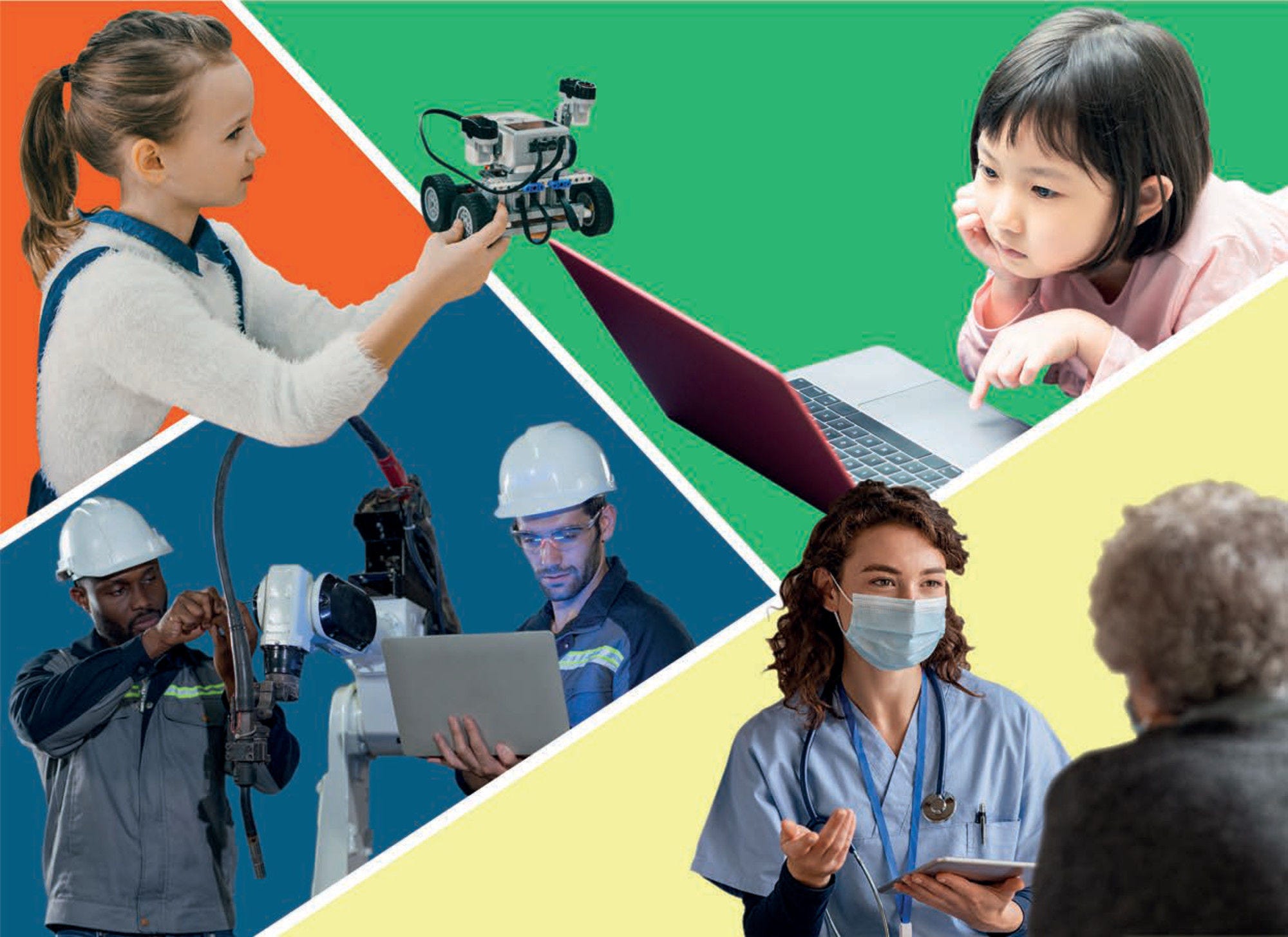This publication was planned and developed by the OECD’s Artificial Intelligence and Future of Skills project team – Stuart Elliott (Project lead), Nóra Révai, Margarita Kalamova, Mila Staneva, Abel Baret and Matthew Gill.
This publication would not have been possible without the invaluable contributions of the renowned computer science and psychology experts who are supporting the project.
Firstly, we would like to express our gratitude to the authors who contributed to this publication (in order of their chapters): Kenneth D. Forbus, Patrick Kyllonen, Sylvie Chokron, Filip De Fruyt, Anita Woolley, Samuel Greiff and Jan Dörendahl, Phillip Ackerman, Britta Rüschoff, David Dorsey and Scott Oppler, José Hernández-Orallo, Ernest Davis, Richard Granger, Anthony Cohn, Guillaume Avrin, Yvette Graham, Lucy Cheke, Marta Halina and Matthew Crosby, Art Graesser, and Eva Baker and Harry O’Neil.
Kenneth D. Forbus would like to thank Stuart Elliott, John Laird, Toby Walsh, Peter Norvig and Bryan Pardo for helpful feedback.
Britta Rüschoff would like to express her special thanks to Prüfungsaufgaben- und Lehrmittelentwicklungsstelle (PAL) and GACC Midwest (German American Chamber of Commerce of the Midwest, Inc.) for kindly providing the materials used within her chapter.
José Hernández-Orallo thanks Fernando Martínez-Plumed for very insightful comments and discussion on an early version of this report.
Anthony Cohn is partially supported by a Fellowship from the Alan Turing Institute, and by the EU Horizon 2020 under grant agreement 825619 (AI4EU). He would like to thank the participants of an online expert meeting, held in October 2020 and organised by the OECD AI and the Future of Skills project, who gave useful feedback on a draft of his chapter.
Guillaume Avrin wishes to thank the Metrological Evaluation and Testing of Robots in International Competitions (METRICS) partners for their valuable input and collaboration.
Secondly, we would like to thank the AI and the Future of Skills project’s ‘‘Critical Friends’’ – Lucy Cheke, Kenneth D. Forbus, José Hernández-Orallo, Patrick Kyllonen and Michael Schoenstein. They have been a crucial sounding board to the project throughout the development of this workshop and report.
Additionally, we wish to thank our colleagues in the Centre for Educational Research and Innovation (CERI). Dirk Van Damme, former Head, provided oversight, direction and valuable advice during the process. Matthew Gill, Project assistant, who made an enormous contribution to both formatting and the preparation of the publication, along with colleagues within the Directorate for Education and Skills communications team and the Public Affairs and Communications Directorate.
Our thanks are extended to Mark Foss, who made substantive and structural editing to the publication, ensuring for coherent, comprehensible reading.
We are grateful for the encouragement and support of the CERI Governing Board in the development of the project and this volume.
This publication contributes to the OECD’s Artificial Intelligence in Work, Innovation, Productivity and Skills (AI-WIPS) programme, which provides policy makers with new evidence and analysis to keep abreast of the fast-evolving changes in AI capabilities and diffusion, and their implications for the world of work. The programme aims to help ensure that adoption of AI in the world of work is effective, beneficial to all, people-centred and accepted by the population at large. AI-WIPS is supported by the German Federal Ministry of Labour and Social Affairs (BMAS) and will complement the work of the German AI Observatory in the Ministry’s Policy Lab Digital, Work & Society. For more information, visit https://oecd.ai/work-innovation-productivity-skills and https://denkfabrik-bmas.de/.
